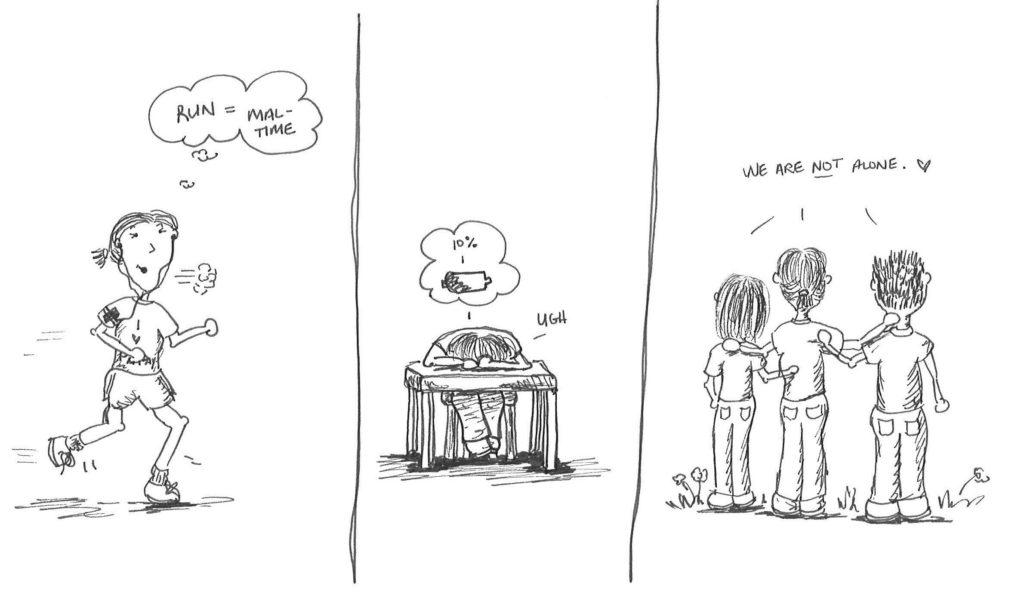by Mallory Bower
In the beginning, things were just a little off. If you weren’t close, you wouldn’t have noticed. My intuition was in overdrive and my gut was screaming, “this isn’t right!” But still, I couldn’t quite put my finger on it.
First, there were the tall tales that I so badly wanted to believe. Elaborate stories, spun carefully with conviction and woven with lies.
Then there were bouts of hyper, all-in mania that made my head spin trying to follow along and make sense of it all. Hundreds of projects started, but never finished. Nuts and bolts; screws loose.
Next came the mood swings, broken glass, unbridled anger. Followed by self-loathing and isolation.
And then, quiet. The calm before the storm that would brew again without warning.
The story about being diagnosed with bipolar disorder is not mine to tell. My story, the one about love, forgiveness, and being a caregiver is one that I own but don’t often share. Twelve years ago, I was too young to understand it and too young to be the glue that held us together. Picking up the pieces took its toll on my own wellness, and in retrospect, I wish I had more information and support to thrive in my environment.
One in four Americans suffers from mental illness. If you’re not one of them, it’s likely that someone in your household is. In our profession and in our lives we are often designated as caregivers, which can be both rewarding and stressful. Here are some quick tips on how to prioritize your own wellness when caring for others:

Arm yourself with information. Research your loved one’s disease so you know how to identify symptoms and triggers.
Say “yes” to help from others. Keep a handy list of ways that friends and family can assist you. Trust me, no amount of help is too small or will go unnoticed.
Take time for yourself. I’m sure you’ve heard the phrase, “You can’t care for others unless you care for yourself.” This can be difficult for people in student affairs, even for individuals without caregiving responsibilities. Take a walk, meditate, exercise, or spend time with people who make you laugh.
Focus on what you can control. Don’t spend too much time on the “what ifs?” Identify what is in your scope of control and do your best with everything else.

Know your limits and signs of burnout. Have a plan to refresh (see: “Take time for yourself.”) Ask your friends and family members to step up so you can recharge your batteries and take care of your own mental wellness.
Seek counseling. Set up a regular time to chat with a therapist about your feelings and responsibilities. Find a support and connect with people in similar situations.
Forgive your loved ones. Forgive yourself. It’s so easy to harbor feelings of resentment towards the person for whom you’re caring. I haven’t quite mastered this one myself – but try your best to let go of and forgive behaviors that are beyond their control.
And most importantly, know that you’re not alone.
Originally posted at the Student Affairs Collective on May 8, 2014.
